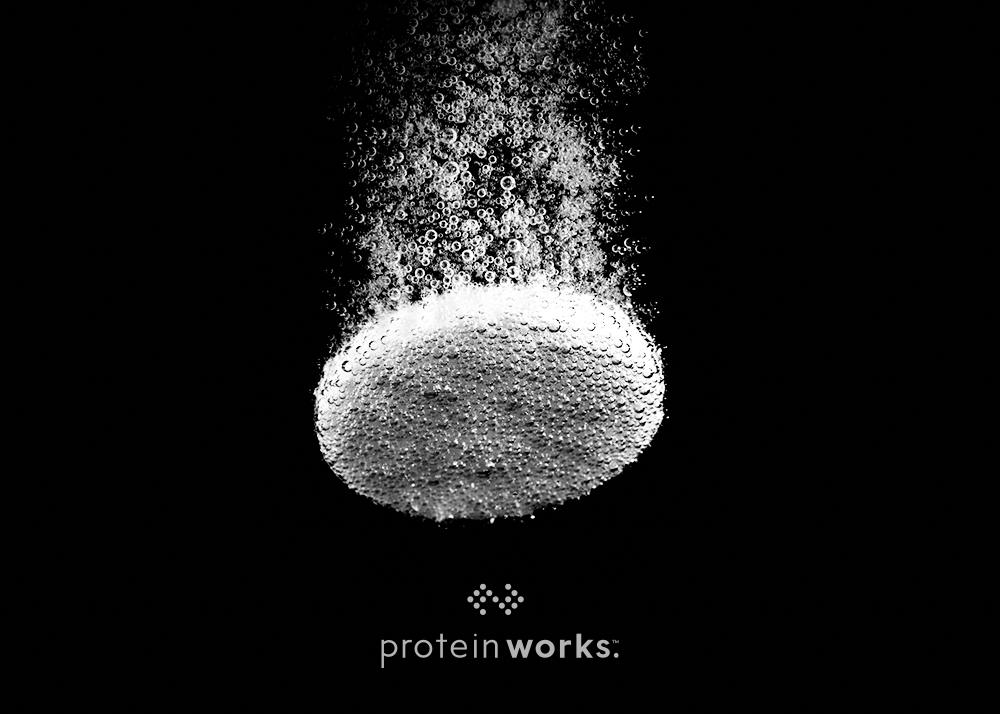Electrolytes are essential minerals that play a crucial role in keeping your body running smoothly. You’ve likely come across them in the context of hydration, but they support a range of other important functions too, including muscle movement and maintaining a steady heartbeat. The main electrolytes include sodium, potassium and chloride, along with magnesium, calcium, bicarbonate, and phosphate.
Every day, your body naturally loses electrolytes through processes like breathing, sweating and digestion. You typically replace them through the foods you eat and the fluids you drink. However, if you’re unwell or exercising intensively, your body may require extra electrolytes to keep up with demand. Maintaining the right electrolyte balance is essential for staying hydrated, energised and functioning at your best.
In this guide, we’ll explore what electrolytes are, why they’re so important, and the best ways to keep your levels in check – helping you stay hydrated and maintain that all-important balance.
Why are Electrolytes Important?
Electrolytes are vital for supporting a wide range of essential functions throughout the body, including:
- Regulating fluid balance to keep you properly hydrated
- Supporting muscle contractions to prevent cramps and aid movement
- Maintaining a steady heartbeat
- Assisting in nerve signalling for effective communication throughout the body
- Balancing pH levels to keep your body’s acidity and alkalinity in check
Without sufficient electrolytes, these processes can’t function as they should, which may lead to symptoms like dehydration, muscle cramps and fatigue.
What Causes an Electrolyte Imbalance?
An electrolyte imbalance occurs when the levels of electrolytes in your body become too high or too low. Your kidneys are responsible for maintaining electrolyte balance, but several factors can disrupt this process, including:
- Dehydration – Excessive fluid loss from sweating, fever, or not drinking enough water can deplete electrolyte levels.
- Illness – Vomiting, diarrhoea, and conditions affecting the kidneys or liver can lead to rapid electrolyte loss.
- Medications – Certain medications, like diuretics, can increase electrolyte loss.
- Dietary factors – An unbalanced diet – either too low in essential nutrients or too high in salt – can disrupt electrolyte levels.
- Intense exercise – Prolonged, high-intensity exercise can cause excessive sweating, leading to an increased loss of electrolytes.
When electrolyte levels are out of balance, your body may struggle to perform essential functions. This can result in symptoms like muscle cramps, fatigue, confusion or even serious heart issues. Keeping your electrolyte levels stable is key to keeping your body functioning smoothly.
What are the Best Sources of Electrolytes?
The best way to maintain a healthy electrolyte balance is through a balanced diet. Electrolytes are naturally found in a variety of foods, including fruits, vegetables, dairy, nuts and seeds. Table salt is also a good source of both sodium and chloride, but it should be consumed in moderation.
Here are some top sources of electrolytes:
- Sodium – Pickled foods, cheese and table salt
- Chloride – Table salt
- Potassium – Bananas, broccoli and beans
- Calcium – Dairy products, fortified dairy alternatives and leafy greens
- Magnesium – Nuts, seeds and whole grains
For quick replenishment – especially after intense exercise or in hot weather – electrolyte drinks can be a useful and practical option. These drinks contain a balanced mix of electrolytes and are designed for quick absorption. They provide faster rehydration than water alone, especially when the body has lost a lot of fluids through sweat.
The Right Doses
The amount of electrolytes you need varies depending on factors like age, lifestyle and activity level. According to the NHS, a typical adult should aim for the following daily amounts:
- Sodium chloride – No more than 6g of salt (2.4g of sodium) per day
- Potassium – 3,500mg
- Calcium – 700mg
- Magnesium – 300mg (men) or 270mg (women)
However, intense exercise, illness or hot weather may increase your needs. If you’re feeling dehydrated or experiencing symptoms like muscle cramps or dizziness, you might need to boost your intake with electrolyte-rich foods or electrolyte drinks.
That said, it’s important to avoid overconsumption. Too much sodium chloride can lead to high blood pressure, while excessive potassium, calcium or magnesium can cause stomach pain and diarrhoea. A balanced intake is key to supporting optimum health.
The Take Home
Maintaining electrolyte balance is essential for your overall health and well-being. While a balanced diet usually covers your daily needs, if you’re ill or training intensively, your body may need an extra boost. In these cases, electrolyte drinks offer a fast and convenient way to restore hydration and energy, supporting your body’s function and helping you feel your best.
References:
https://www.nhs.uk/conditions/vitamins-and-minerals/
https://www.healthline.com/nutrition/electrolytes
https://www.ncbi.nlm.nih.gov/books/NBK236237/
https://www.ncbi.nlm.nih.gov/books/NBK541123/
https://www.healthline.com/nutrition/foods-high-in-phosphorus
https://www.webmd.com/a-to-z-guides/what-is-electrolyte-imbalance

